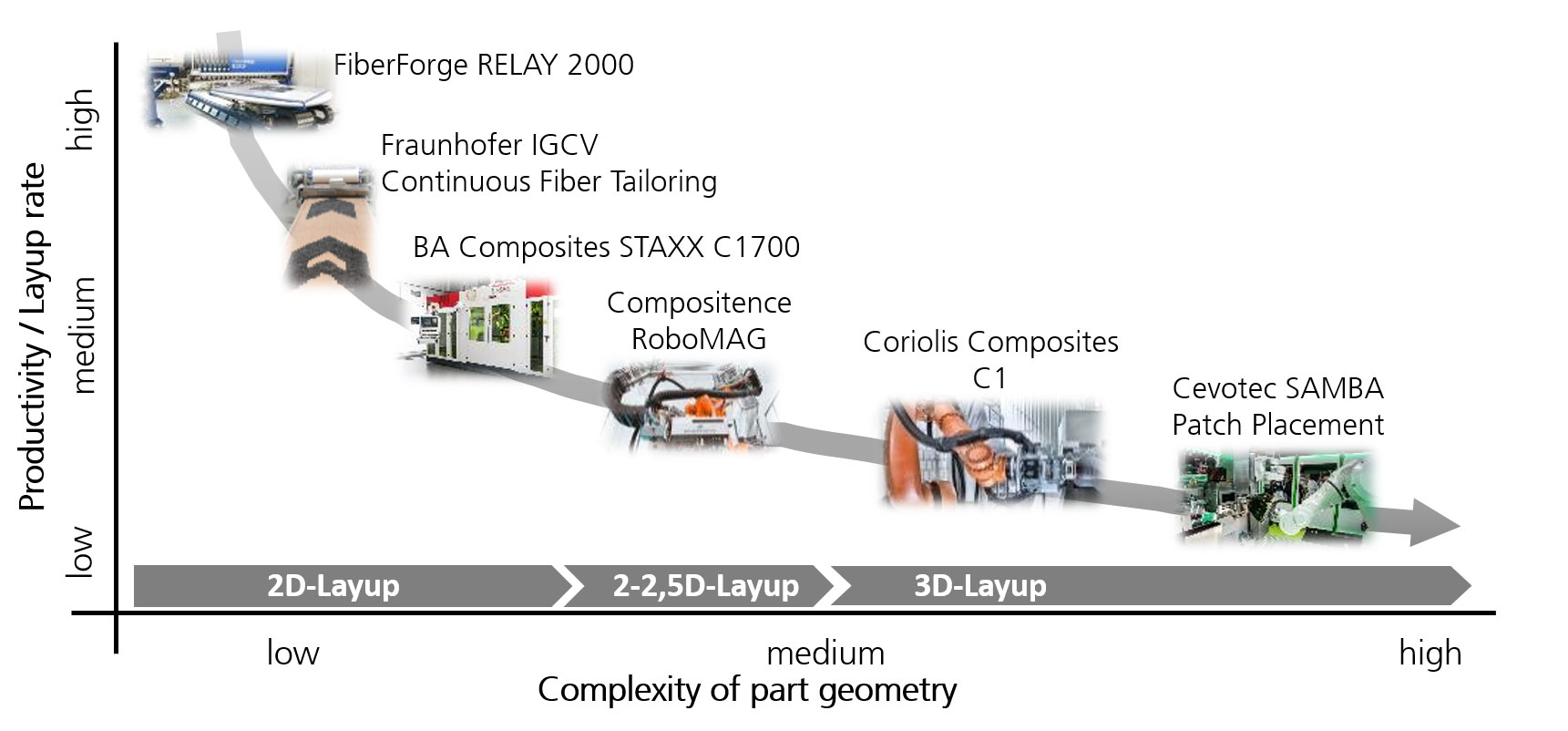Lightweight construction at the push of a button: Automated development and evaluation of composite manufacturing processes
Helicopters today are predominantly manufactured from carbon fiber reinforced plastic (CFRP). The weight savings achieved by the material directly result in a higher payload or range and lower energy consumption during operation. A particular challenge for economical production is low volumes, combined with the highest demands on quality from the first component produced. Significant risks arise when switching to new manufacturing technologies, resulting in a great deal of effort in developing suitable processes. In the COBAIN project, Fraunhofer IGCV is developing solutions for the automated development and evaluation of manufacturing processes in the overall context of the next generation of a compact helicopter structure made of CFRP.
